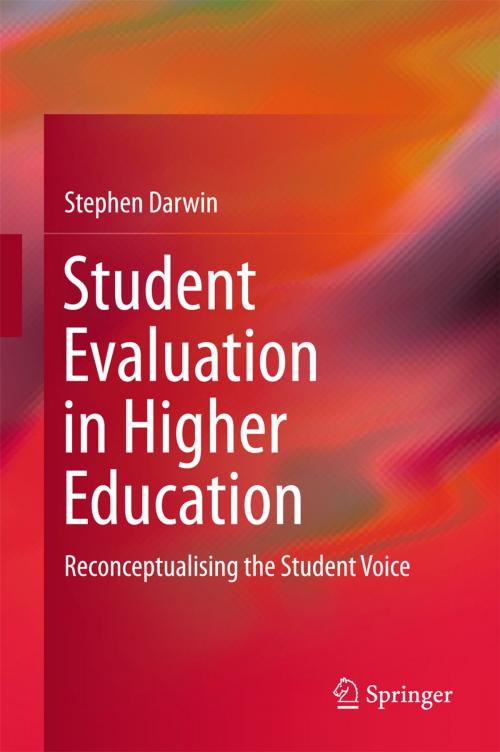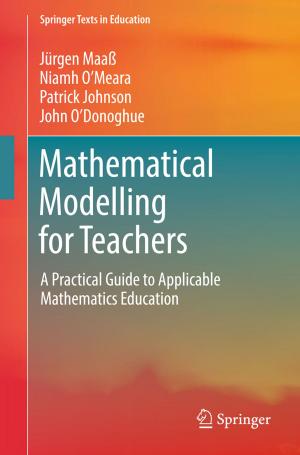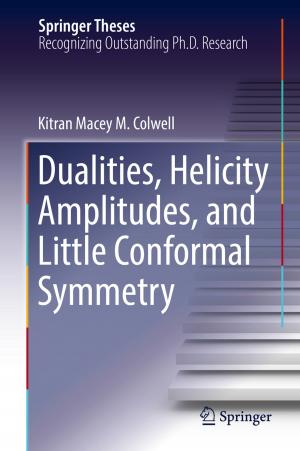Student Evaluation in Higher Education
Reconceptualising the Student Voice
Nonfiction, Reference & Language, Education & Teaching, Educational Theory, Evaluation, Educational Reform| Author: | Stephen Darwin | ISBN: | 9783319418933 |
| Publisher: | Springer International Publishing | Publication: | July 15, 2016 |
| Imprint: | Springer | Language: | English |
| Author: | Stephen Darwin |
| ISBN: | 9783319418933 |
| Publisher: | Springer International Publishing |
| Publication: | July 15, 2016 |
| Imprint: | Springer |
| Language: | English |
This book provides a comprehensive and engaging analysis of the purpose and function of student evaluation in higher education. It explores its foundations and the emerging functions, as well as its future potential to improve the quality of university teaching and student learning.
The book systematically assesses the core assumptions underpinning the design of student evaluation models as a tool to improve the quality of teaching. It also analyses the emerging influence of student opinion as a key metric and a powerful proxy for assuring the quality of teachers, teaching and courses in universities. Using the voices of teachers in the day-to-day practices of higher education, the book also explores the actual perceptions held by academics about student evaluation.
It offers the first real attempt to critically analyse the developing influence of student evaluation on contemporary approaches to academic teaching. Using a practice-based perspective and the powerful explanatory potential of cultural historical activity theory (CHAT), the implications of the changing focus in the use of the student voice - from development to measurement - are systematically explored and assessed.
Importantly, using the evidence provided by a unique series of practice-based case studies, the book also offers powerful new insights into how the student voice can be reconceptualised to more effectively improve the quality of teaching, curriculum and assessment. Based on this empirical analysis, a series of practical strategies are proposed to enhance the work of student evaluation in the future university to drive pedagogical innovation.
This unique volume provides those interested in student evaluation with a more complex understanding of the development, contemporary function and future potential of the student voice. It also demonstrates how the student voice - in combination with professional dialogue - can be used to encourage more powerful and substantial forms of pedagogical improvement and academic development in higher education environments.
This book provides a comprehensive and engaging analysis of the purpose and function of student evaluation in higher education. It explores its foundations and the emerging functions, as well as its future potential to improve the quality of university teaching and student learning.
The book systematically assesses the core assumptions underpinning the design of student evaluation models as a tool to improve the quality of teaching. It also analyses the emerging influence of student opinion as a key metric and a powerful proxy for assuring the quality of teachers, teaching and courses in universities. Using the voices of teachers in the day-to-day practices of higher education, the book also explores the actual perceptions held by academics about student evaluation.
It offers the first real attempt to critically analyse the developing influence of student evaluation on contemporary approaches to academic teaching. Using a practice-based perspective and the powerful explanatory potential of cultural historical activity theory (CHAT), the implications of the changing focus in the use of the student voice - from development to measurement - are systematically explored and assessed.
Importantly, using the evidence provided by a unique series of practice-based case studies, the book also offers powerful new insights into how the student voice can be reconceptualised to more effectively improve the quality of teaching, curriculum and assessment. Based on this empirical analysis, a series of practical strategies are proposed to enhance the work of student evaluation in the future university to drive pedagogical innovation.
This unique volume provides those interested in student evaluation with a more complex understanding of the development, contemporary function and future potential of the student voice. It also demonstrates how the student voice - in combination with professional dialogue - can be used to encourage more powerful and substantial forms of pedagogical improvement and academic development in higher education environments.















